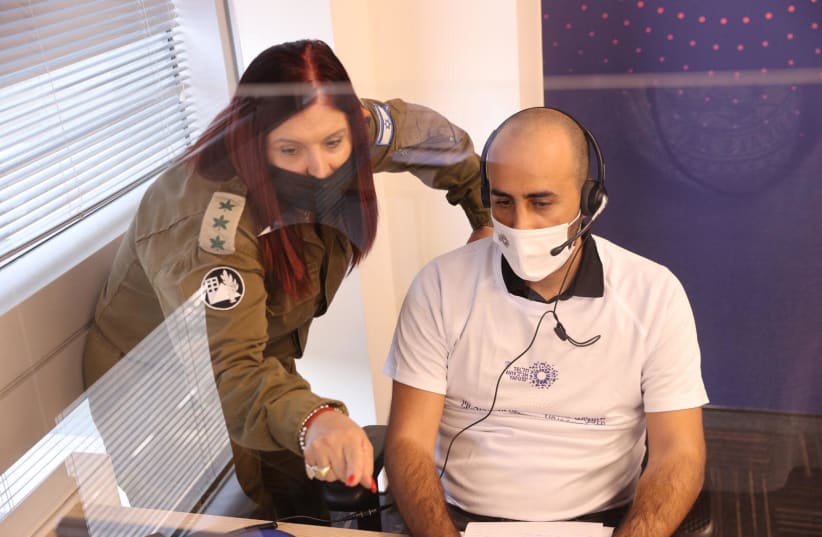As the number of coronavirus cases continues to rise, Tel Aviv-Jaffa has opened a municipal epidemiological investigation center.
The center, which has been opened in partnership with the Health Ministry, IDF Home Front Command and Israel Police, will be tasked with breaking the chain of infections and will operate seven days a week.
It will be staffed by 120 municipal employees and 60 post-high school volunteers who have pushed their IDF draft date by a year to do national service.
Col. (res.) Ronit Lev, commander of the IDF’s Tel Aviv-Jaffa Municipality Connection Unit, told The Jerusalem Post that the use of the post-high school students in the center is “unique. This is not being done in any other city.”
The city, Lev said, “wants to close the circle of those who are sick and get to them as quickly as possible. The faster we can get to him, investigate him and quarantine him and everyone who has been in contact with them, we can cut the chain of infection. That’s our goal.
“The mayor doesn’t want to waste time quarantining people who have been in contact” with individuals who have been tested positive for the virus.
According to Lev, on Tuesday morning alone, investigators made 75 epidemiological calls regarding coronavirus patients and contacted 167 people who they had been in contact with.
The city, which currently has 2,108 residents confirmed to have the virus, has bolstered its call center with social workers who are dealing with the increase in mental health and financial difficulties due to the nationwide lockdown.
“The Tel Aviv-Jaffa Municipality moved up a level in the fight against COVID-19 today,” said Mayor Ron Huldai. “We have understood that, in order to flatten the curve in the city, we must take the initiative and lead. One hundred municipal employees and post-high school volunteers will work seven days a week, locate patients, isolate them and ensure that they are following the guidelines. This is how you cut the chain of infection quickly and efficiently.”
During the first wave of the pandemic, the city established a municipal control center in partnership with the Home Front Command and the Health Ministry, which closely monitors rates of coronavirus infection in different neighborhoods.
Nevertheless, many municipalities complained that there were major accuracy gaps in the data provided by the Health Ministry, making it almost impossible to manage the crisis.
Municipalities are now playing a larger role in combating the coronavirus alongside the Home Front Command using a municipal control and regulation system.
